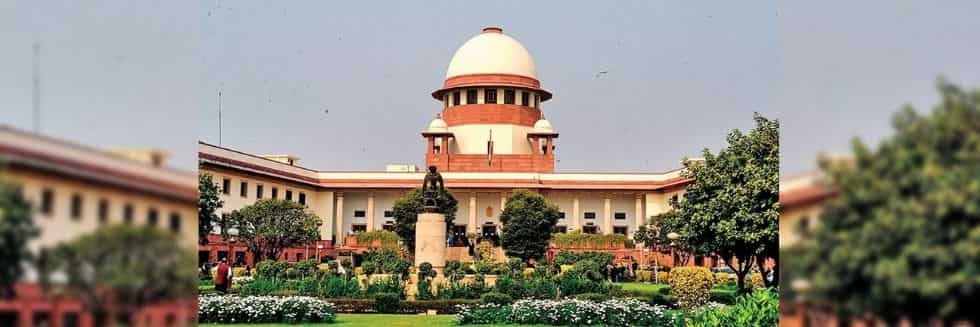Allahabad High Court has allowed the habeas corpus petition of a woman who was seeking custody of her three and a half years son from her husband. While observing that a child’s welfare to be better secured in the mother’s hand, the court granted the custody of minor child to the mother.
The matter was taken up by a single judge bench of Justice J Munir.
“It is the precipitate wisdom of generations that a young child’s welfare is better ensured in the hands of the mother than the father, or for that matter, anyone else. It is in keeping with this transcendent experience of mankind that the proviso to Section 6(a) of the [Hindu Minority and Guardianship] Act of 1956 reserves to the mother the right to the child’s custody until the age of five years,” the court observed.
The petitioner Preeti approached the High Court claiming that she is not being allowed to meet with her son and he is under the unlawful custody of her husband and in-laws. She also mentioned that she was forced to leave her matrimonial house and dowry was also demanded from her.
Preeti also added in the petition that she was a working woman and her husband kept on leaving his jobs. As per her, in 2017, her husband again left his job and all the responsibility fell on her shoulders. She also claimed that she was abused, harassed, and ill-treated when they were living together.
The counsel appearing for husband argued that this habeas corpus petition is not maintainable as the petitioner had not exhausted the existing remedies. He also challenged the maintainability of the habeas corpus plea on the grounds that one parent is seeking custody of the child from the other parent. It was further contended that the father is the natural guardian of the child under Section 6(a) of the Hindu Minority and Guardianship Act, 1956.
The husband submitted that Preeti was a bad wife and bad mother and custody of the child who suffers health issues cannot be ensured to her.
“It is quite another matter that in some cases, the question about the minor’s welfare, which a Court seized of a habeas corpus matter may examine, is enmeshed in so much of factual disputations, that it is incapable of resolution in proceedings, decided on affidavits. It is there that parties may be asked to resort to their remedy under the statute,” the court noted.
After a long discussion with the parties and the minor child, the court noted that child is too young to express a preference. “This Court can’t help but notice the fact that Prashant and his parents have attempted to prove that Preeti has been an uncaring mother since the day she conceived. If they are to be believed, a case of prenatal neglect and prenatal welfare would have to be examined,” noted the bench.
The court granted the custody while referring to the Section 6(a)of the Hindu Minority and Guardianship Act which states that notwithstanding the father being the natural guardian, the custody of a minor who has not completed the age of five years, ought ordinarily be with the mother.
The court further noted, “To this Court’s understanding, all that has been placed on record about Preeti’s engagements in connection with her employment, as evidence about her being an uncaring mother, does not go well with contemporary times. In case, whatever lapses evident, if they can be called that, on Preeti’s part while discharging her role as Advait’s mother, are to be accepted as indicia of maternal neglect, every working mother, who parts ways with her spouse, would have to be condemned as neglectful. What Prashant tries to dub as uncaring behaviour of a mother for Preeti, proceeds on a juxtaposition with the model of a mother, who is a home maker. The man can no longer arrogate to himself the exclusive role of the bread winner and to the woman of the home maker.”
Taking note of the child’s interactions with his grandparents, father, and mother, the court further noted that overindulgence of the child’s father and grandparents can possibly hamper his development and can groom him into a young adult. The court further noted, “To the contrary, this Court did not notice anything about Preeti’s disposition towards her son, which may not auger well for the child’s development and overall welfare.”
The order further stated, “It is the precipitate wisdom of generations that a young child’s welfare is better ensured in the hands of the mother than the father, or for that matter, anyone else. It is in keeping with this transcendent experience of mankind that the proviso to Section 6(a) of the Act of 1956 reserves to the mother the right to the child’s custody until the age of five years. The word ‘ordinarily’ predicates a rule about custody of a young child to be entrusted to the mother, but making allowance in exceptional circumstances for the Court to order otherwise. These circumstances could be demonstrable delinquency, drug addiction, conviction in connection with offences involving moral turpitude, coupled with behaviour, that renders the mother unfit.”
The court also noted that the petitioner is a well educated woman who is capable enough to raise the minor child. The bench directed the Chief Judicial Magistrate, Ghaziabad to ensure that the custody of the child is timely delivered to the mother.






